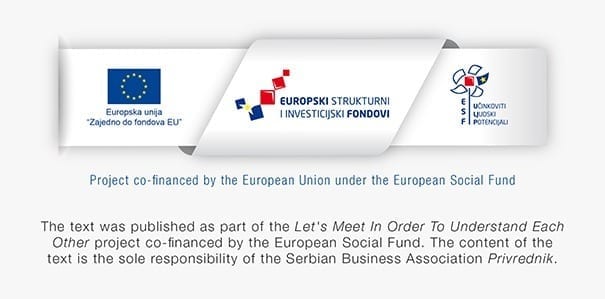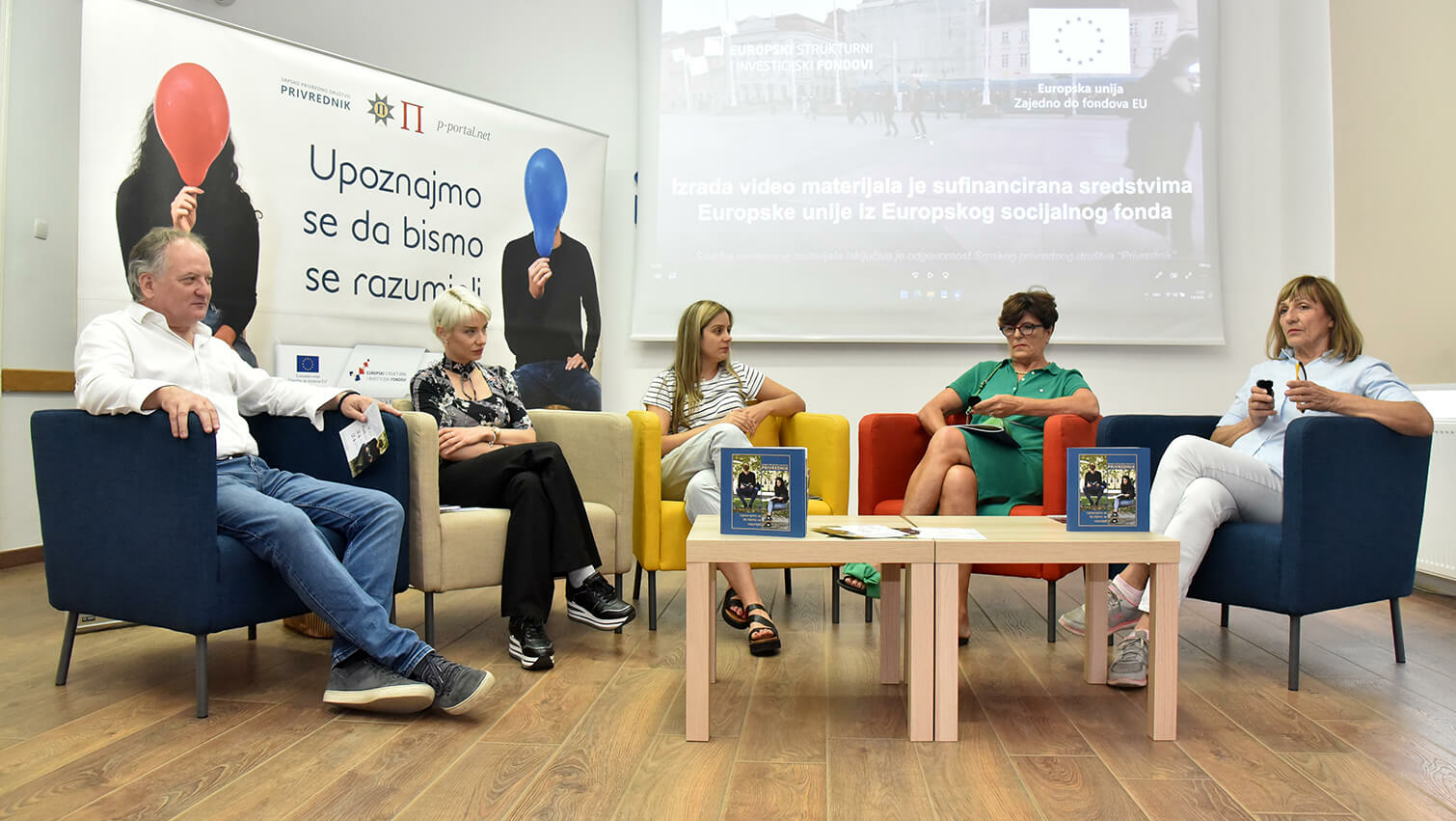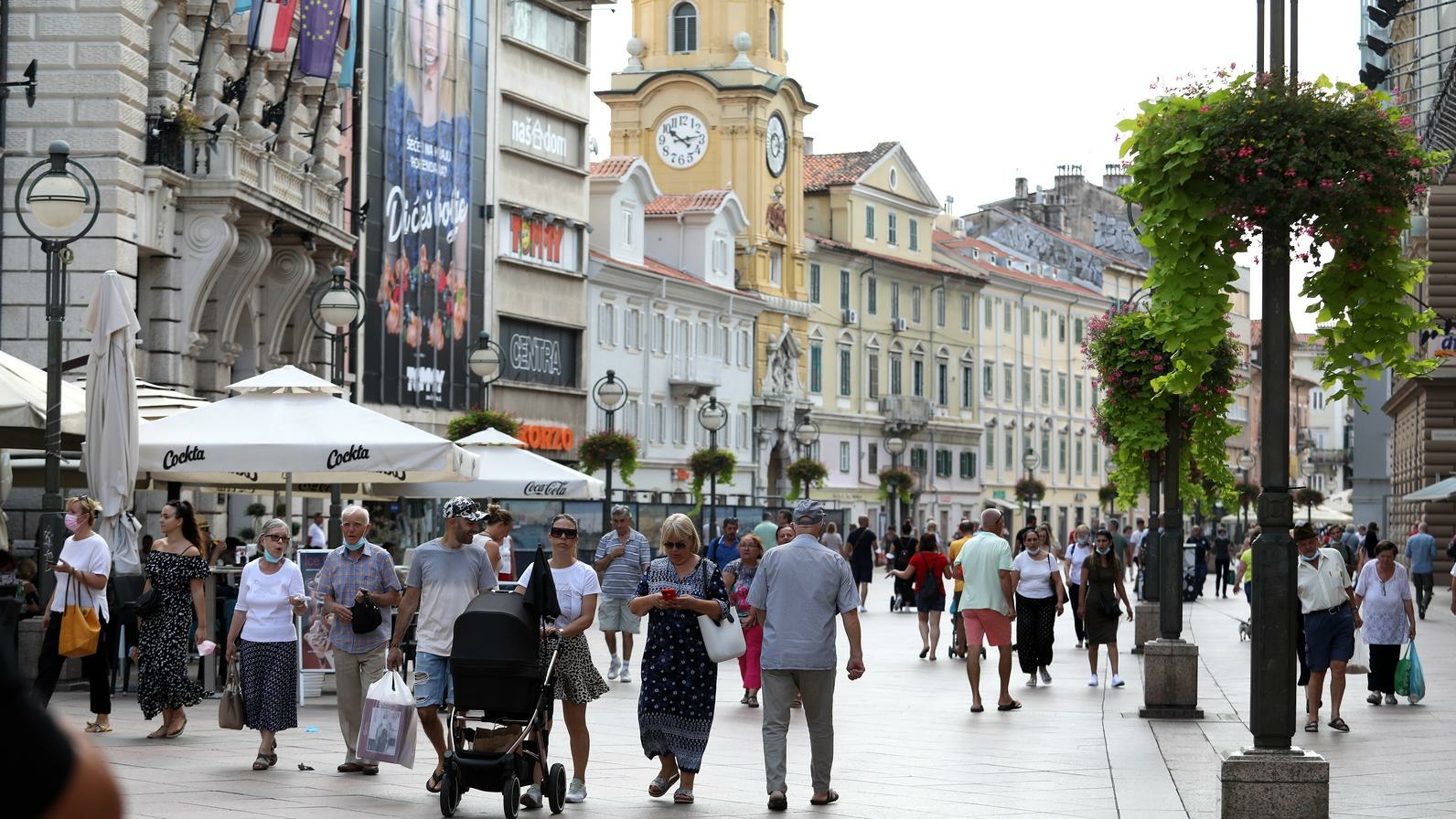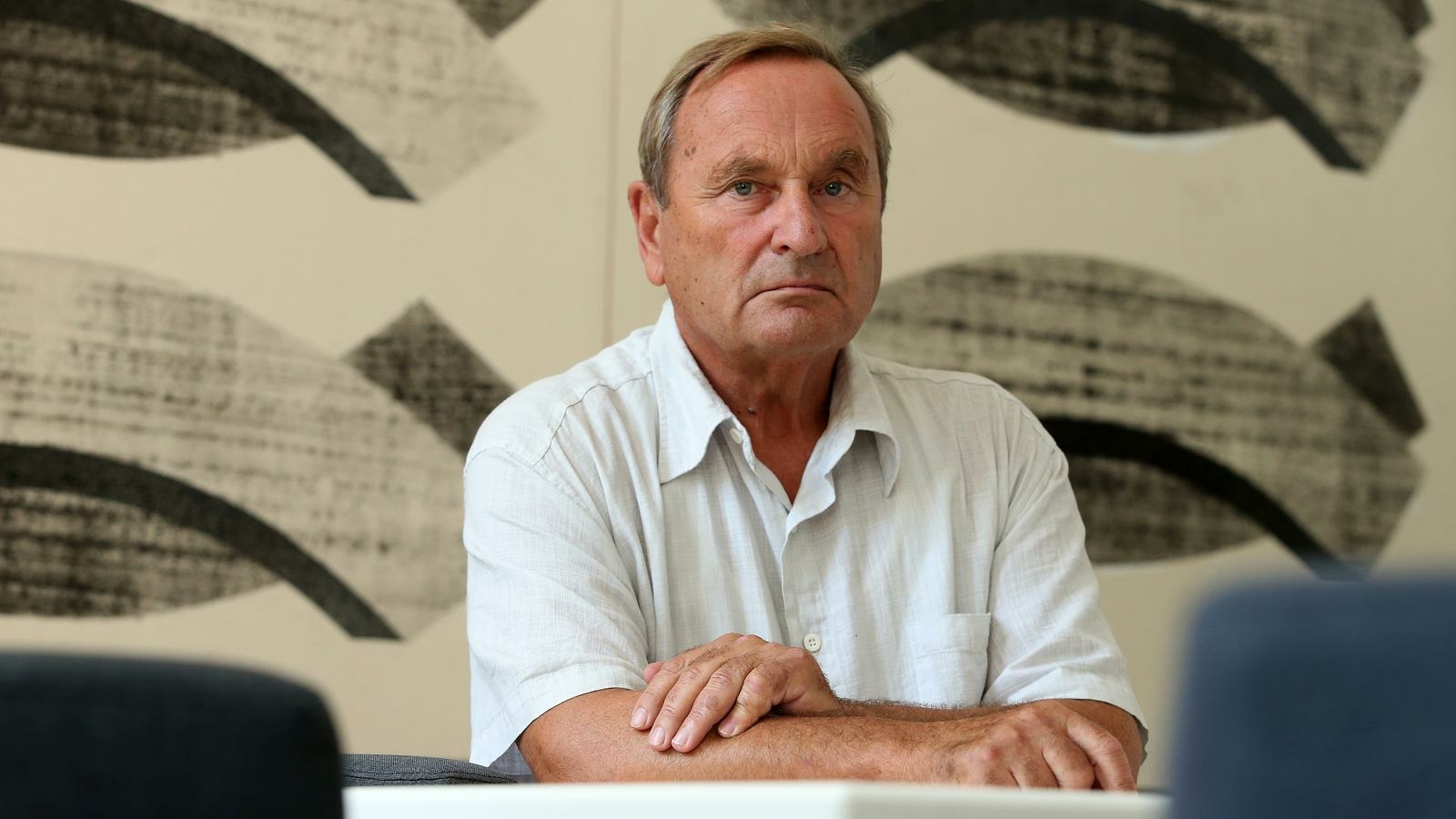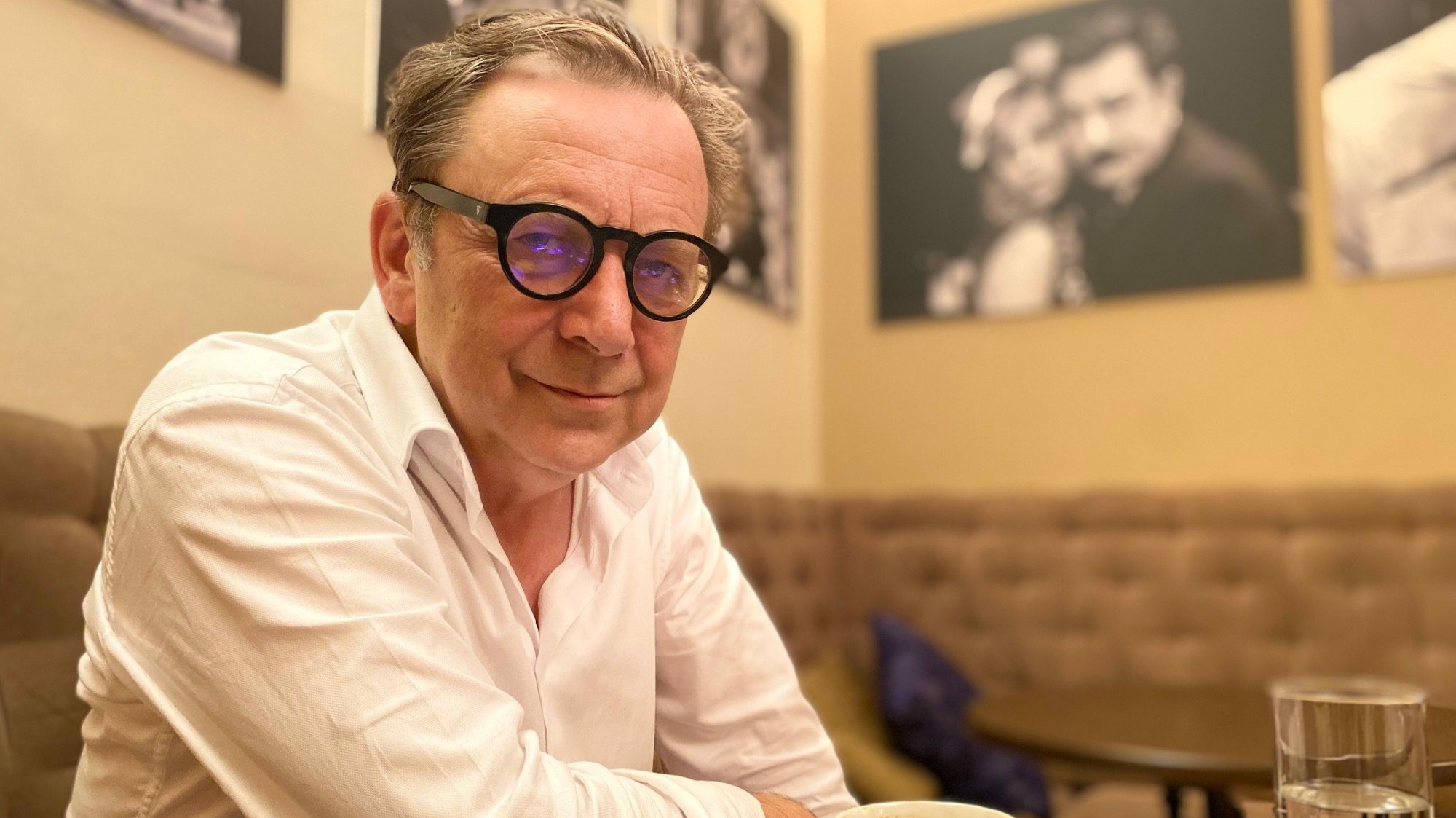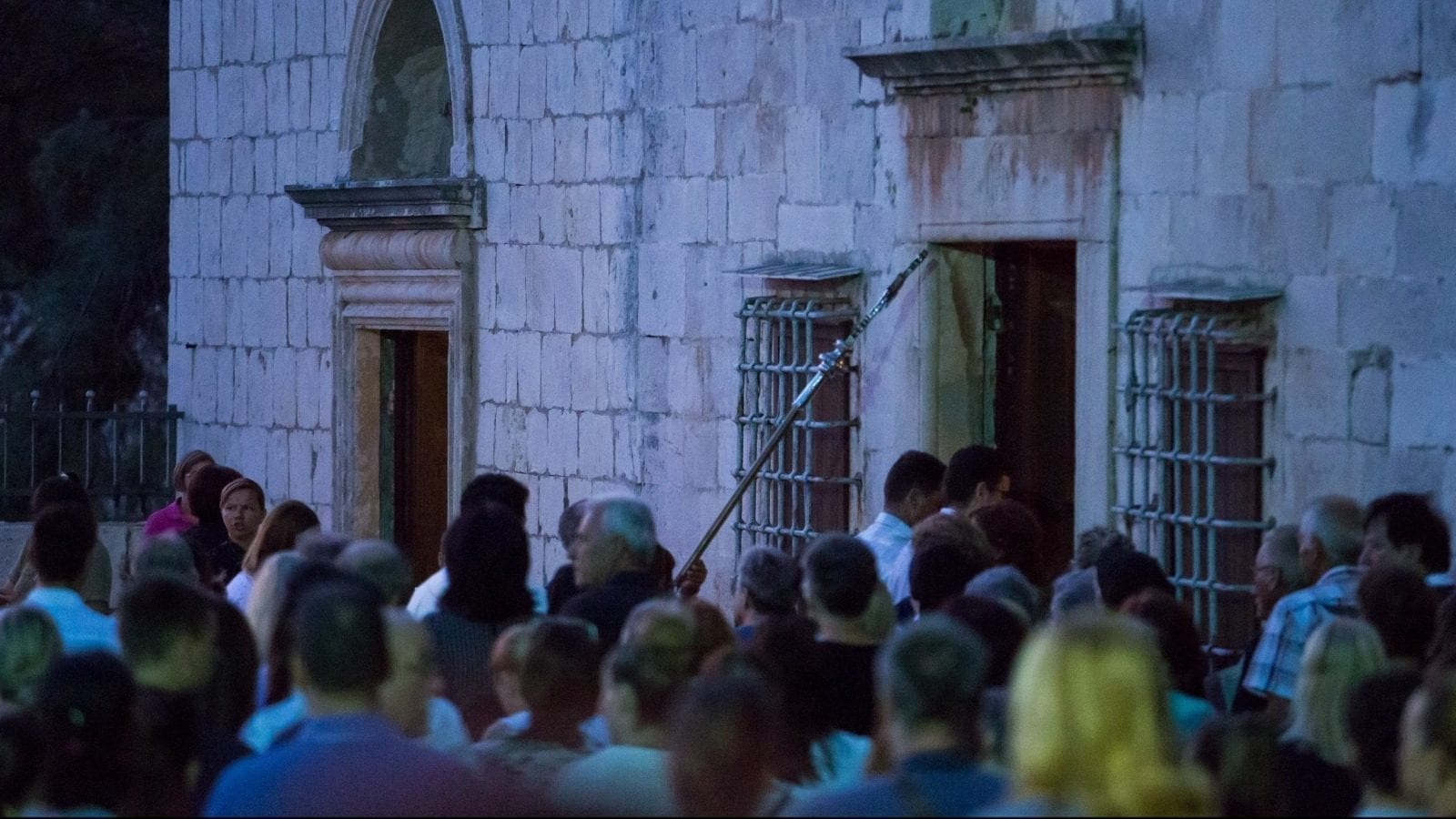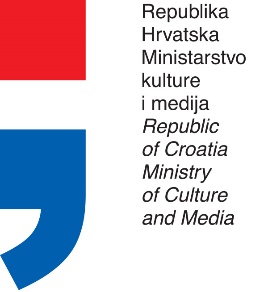“To solve problems, we need to talk about them. Through the project Let’s Get to Know in Order to Understand Each Other, P-portal has highlighted the main problems but also the contributions of the Serbian community in Croatia.” These were the conclusions of the closing press conference held at the Serbian Business Association Privrednik in Zagreb to mark the end of this media project. The results of the project were presented by Nikola Lunić, the president of Privrednik and the project manager, Olivera Radović, the editor of P-portal, and Maša Samardžija, the project administrator.
Nikola Lunić presented the main goals and activities of the project, realized by Privrednik from 12 August 2020 to 12 August 2022.
“We wanted to present the Serbian community in Croatia in the best light through textual and audiovisual journalistic forms. We wanted to present everything other media do not report on but is important for harmony in a society. The produced material showed the importance and contributions of the Serbian community through history and pointed out the problems it faces today. We had documentary films about the tragic events that befell the Serbian community in the past, so we had a film about Jasenovac; we wrote about recent problems, such as the earthquake in Banija; and we had films, podcasts and texts about the problems and connections of young people, who connect and cooperate across regions and countries. While other media try to dig trenches between Zagreb and Belgrade, we have shown that young people cross these trenches and know how to find good things in cities they do not live in,” the project manager said.
The project Let’s Get to Know in Order to Understand Each Other included the production and publishing of 68 texts, 24 documentary films and 24 podcasts. The value of the project is 1,279,614.55 kuna, of which the European Union financed 1,087,672.37 kuna, and 191,942.18 kuna was financed from the state budget of the Republic of Croatia. All the planned activities have been carried out; before them, seven educational workshops were held in which young journalists were trained to report on the Serbian community.
The Serbian Business Association Privrednik has had a rich informational activity since its founding in 1898. Today, the most important segments of that activity are P-portal, the feuilleton Privrednik published bimonthly as part of the Novosti weekly, Privrednik’s public discussions Reci što misliš (Say What You Think) and Radio Privrednik.
“We are satisfied with the results of the project. I think we have done a great thing. We got a significant number of young journalists involved, who learned a lot about the topics relevant to minority communities and about writing about them. Our collaborators were from various parts of Croatia, especially those parts where Serbs are a significant portion of the population, such as Knin, Vukovar, Karlovac and Zagreb. We’ve had correspondents from Banja Luka, Belgrade, Novi Sad. We tried to connect all of them, and the result is a significant amount of produced media content. This project is especially important because it will help us continue developing our media production. We’ve improved P-portal technologically, and the project has also resulted in Radio Privrednik, currently in its experimental phase. All this, together with the many young people involved in the project and the work of P-portal, will be a lasting value after the end of the project,” the project manager stated. He added that Privrednik is primarily a humanitarian organization that helps underprivileged but talented young people, so the project was important in that sense as well since it increased the visibility of the Association’s main activity.
Speaking about the challenges P-portal faced while working on the project, the editor of the portal said that every produced piece involved a lot of effort, time but also courage, both of the journalists, who decided to deal with “unpopular” topics, and of the interviewees and protagonists of the stories.
“Those who did not dare to speak publicly have their reasons, but our mission, among others, is to speak about those reasons. Only if we comprehend and discuss them can they be overcome,” the editor said.
“The benefits of this project are long-lasting. The collaborators will use the skills acquired working on the project in the future, and minority issues will, therefore, be treated more professionally in the media. All the content will be permanently available on the portal; it is accessible to persons with disabilities and translated into English, so it will reach readers and viewers in the future and, hopefully, influence their perception of these topics,” the editor said. She added that the content has a large readership, an important achievement given that the topics were done professionally and without sensationalism.
The editor emphasized that the reach and visibility of the published content are reflected not only in the number of views and reactions of followers on social media but also in the consciousness of the readership.
“If we have succeeded at least a little in removing the stigma on the Serbian community, informing and educating the readers, we are more than satisfied with the results,” she concluded.
“Privrednik’s main concern is young people, their education and the effort to preserve identity. Our media activities are closely connected with our main activity – providing scholarships to pupils and students. Financial support for their education is important but not sufficient alone. In an atmosphere of assimilation and disappearance, it is important to empower them to remain in Croatia and not give up on their identity,” said Nikola Lunić, the president of the Serbian Business Association Privrednik and the manager of the project.
“In our project, we deal with a marginalized social group, and our vulnerable group is young members of the Serbian community,” said the project administrator Maša Samardžija, who moderated the conference, emphasizing that the results of this project have left their mark in the Croatian media.
The short documentary film Zagreb People by journalist Saša Živković and camera operator Ivan Granić was also shown. In the film, people from different cities in Serbia share their experiences of coming and staying in Zagreb.
“This is one of the last films we made, but all the films and other content made in the project speak about the strength of the individual and the respect for oneself and the community in which one lives,” the project manager Nikola Lunić emphasized.
“In this movie, we saw four stories about people who became Zagreb citizens in the true sense of the word. We saw the fates of two older people who came to Zagreb before the war and lived through a difficult time, as well as the fates of two young people who came after the war. Their strength and determination to stay in this city, stay with their families, sacrifice a lot, not give up on themselves and their identity and contribute to the city where they live – that is the essence of this project,” Lunić concluded.
In addition to the project manager, the editor of P-portal and the project administrator, Slavica Beljak and Bogdanka Srdić Vulpe also spoke at the conference. They were interviewees in one of the episodes of the Pravo glasa podcast that P-portal started as part of this project.
Asked by the moderator if they related to the stories shown in the film Zagreb People, Privrednik’s activists and podcasters shared their impressions.
“I don’t have a backup city. I have been living in Zagreb for 60 years. Everything I have gained – friendships, knowledge, culture of living – is in Zagreb. And all the things that have happened to me, both good and bad, happened in this city,” Slavica Beljak said.
“A treen cannot grow without roots. My roots are in Lika, but I have been living in Zagreb since 1964. I love Zagreb, and I love going to Belgrade, but Zagreb is my city. It is great seeing a film like this and the bridges being built between people,” Bogdanka Srdić Vulpe said.
The press conference was attended by many of P-portal’s collaborators who produced the media content (films, podcasts, texts).
The press conference can be watched on Privrednik’s YouTube channel, and the film Zagreb People and the other films made for the project Let’s Get to Know in Order to Understand Each Other are available on P-portal’s YouTube channel (here).
Translation from Croatian: Jelena Šimpraga
